by Ashley Bean Thornton
A few weeks ago on a Sunday most of us who read the Waco Trib opened our paper to find a dramatic advertisement – two full pages. The ad expressed a love of Waco and went on to list several beliefs that the signers — more than 100 folks in town, mostly local pastors — hold dear. Not everyone agreed with the beliefs listed in the ad. A group of people who believe differently responded via Facebook posts, letters to the editor and an op-ed piece expressing their own love of Waco and listing their own beliefs. Good for us! I’m sure I don’t need to remind anyone to be thankful for this precious liberty to freely express our widely differing beliefs without fear of being “disappeared.”
We have the right to be divided! But, progress comes from unity. How do we make that paradox work?
I have friends who signed the ad, and I have friends who wrote letters and editorials disagreeing with the ad. Must I choose between them? I profoundly disagree with some people in our community about beliefs that are at the very core of their faith and their identity. Can we still work together to build a stronger Waco?
I generally subscribe to a “live and let live” philosophy. I can be very tolerant when it comes to matters of taste. You like country music, it grates on me a little — but fine, I don’t really care that much. You like the Mavericks, I like the Spurs– it might take me a while, but I can make peace with that.
There comes a point, however, when differences of opinion enter the realm of right and wrong and justice. Who is allowed to marry whoever they want, and who is not? Does a pregnant woman get to be the one who decides if she will carry her pregnancy to term or not? In regard to these kinds of issues my mind is made up. I believe I am right – morally right. That means that to me some of you are wrong. I don’t mean “Wow, that’s an ugly sweater” wrong, but morally wrong, on the wrong side of justice wrong. There comes a point I can no longer “go along to get along,” I have to speak out. Does that mean I can no longer be your friend? Does that mean we can no longer work together on other issues? I worry about that. I don’t want the bitter divisions that seem to be making progress so difficult in our national politics to get in the way of people working together in my own community.
I have had a couple of conversations lately that have shed a little light on this concern. The first conversation was with a new friend. We’ve seen each other’s names for years connected with various community efforts, but we had never really had a talk. She noticed on Facebook that I took a stand that surprised her in regard to Planned Parenthood. She invited me to lunch. Instead of preaching to each other or trying to convince each other to change sides, we simply shared our history with the issue. We talked about what was at the heart of the matter for each of us. It wasn’t a debate. Neither of us changed our minds. We just listened to each other and got to know each other better. I think we parted better friends, despite our deep disagreement about this controversial issue.
The other conversation was with a Pastor friend. We were meeting to discuss job programs and community outreach, but we drifted into a conversation about “The Big Ad.” We talked candidly about some of the areas where our personal convictions are most different from each other. We parted, as we always do, with a hug.
I’m sure these kinds of conversations take place every day, but I don’t want us to take them for granted. They are crucial to the work of our community, and, at the risk of being overly dramatic, I believe they are crucial to the work of democracy. I am deeply thankful for free speech and the freedom to disagree, but if all we know how to do is disagree with each other, we will have a tough time moving forward.
I have reflected a bit on what made these conversations possible. I believe it is that these friends and I know more about each other than just our opinions on a couple of hot button issues. We are complicated to each other. I know, for example, that both these people love Waco. They love the people of Waco. They are working hard. They give generously of their time and energy and creativity to make our community stronger. And so, I can approach a conversation with them – even about a difficult topic – with respect and curiosity instead of with “shields up.” I can be vulnerable to them. I can expose my own mixed feelings without fear that they will use them against me. In both these conversations there was an implied rule that we weren’t trying to change each other, we were genuinely trying to get to know each other more deeply.
Making progress together while holding sacred our right to disagree is complicated. It’s easy for me to stay nested with other folks who believe just like I do and to reduce the people who believe differently to one-dimensional targets. To work together across our differences we have to be complicated to each other. We have to know more about each other than just our points of disagreement. To do that we need to figure out ways to spend some time together, to get to know each other, and to talk…not debate, not negotiate, not persuade…just talk and listen.
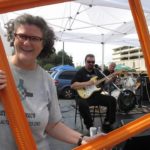 This Act Locally Waco blog post is by Ashley Bean Thornton, the Manager of the www.www.actlocallywaco.org website and the editor of the WHOLE Enchilada newsletter. The Act Locally Waco blog publishes posts with a connection to these aspirations for Waco.
This Act Locally Waco blog post is by Ashley Bean Thornton, the Manager of the www.www.actlocallywaco.org website and the editor of the WHOLE Enchilada newsletter. The Act Locally Waco blog publishes posts with a connection to these aspirations for Waco.
If you are interested in writing for the Act Locally Waco Blog, please email [email protected] for more information.
(Note: This is Part 2 of a two-part series on Hospice for National Hospice Month. Here is the link to Part 1: National Hospice Month, Part 1: “I don’t want to read about dying!”)
by Tammera Ryan
“When we honestly ask ourselves which person in our lives means the most to us, we often find that it is those who, instead of giving advice, solutions, or cures, have chosen rather to share our pain and touch our wounds with a warm and tender hand.” ~ Henri Nouwen
We got to be involved with a patient that touched us. His name was Robert.
Robert had lived a rather interesting life. Throughout his 58 years, circumstances had left him homeless, living on the streets; finding his way where he could, and disconnected from his sister. Although that is important, we won’t dwell on that part of his life’s journey. Because sometimes in life, it’s not how you start, it’s how you finish.
If you read last week’s blog, you will remember that I said I would share a patient’s story. This is one that makes me proud to work for a not-for-profit hospice, specifically, Providence Hospice. Providence has never had to turn anyone away regardless of payment source. Providence Hospice offers many programs in the community: bereavement support to anyone who needs it, children’s grief programs, a specialized Veteran’s Program, a Pathways program and more.
Now, back to Robert. I mentioned that Robert’s circumstances had left him homeless. He was found by another homeless gentleman laying between two buildings. He was in obvious pain due to a terminal illness, had not been able to have a bath in weeks, had a hard time communicating, and needed help desperately. Somehow, Robert’s friend managed to get him to a local physician’s office. Fortunately, that physician contacted her friend; a Providence Hospice Social Worker. With very few questions asked, the wheels were in motion for Robert to get great care at Providence Hospice Place.
Robert was given a private room at Providence Hospice Place. He got immediate medications to help relieve his pain and received a much needed warm bath in the facility’s state-of-the art bathing system. He got undivided nurse’s attention, and received a hospice physician visit every day he was there. Perhaps just as important, that same social worker who got the call that someone needed help made sure she found him clothing, shoes, and other basic life necessities.
Now that Robert was safe and his physical pain was managed, Robert knew he needed something deeper. Robert had lost his faith. He knew he believed, but he had no way of connecting with his spirituality. With the help of the Providence Hospice Chaplain and through many heartfelt conversations and a complete bearing of his innermost thoughts, he began to reconnect and found his faith again.
After five days of care at Providence Hospice Place, it became necessary for Robert to be moved to a long-term care facility. When it came time to make that move, he was not worried about his new clothes or the few other items he had collected. The one thing he wanted more than anything was to take with him the Bible that had been laying by his bed. Of course, the staff let him take that Bible.
Robert was at peace living in the facility. He enjoyed his meals and the new friendships he made. The Hospice staff who visited him at the nursing facility always found the Bible he had taken with him right beside him every time they visited. They could tell it was being read.
A few more weeks went by and Robert grew weaker and weaker. He continued to thank the Providence Hospice team who took him in, who clothed him, who bathed him. He talked about a sister. One day the nurse sat with Robert helping him to write a letter to his sister.
A few more days went by and on a peaceful night, Robert took his last breath….a Bible laying by his bed. That Bible was given to the hospice nurse who was with him those last moments. Inside the Bible, in feeble hand-writing, was written a name and address. The nurse knew it was the sister he had talked about. The nurse was able to connect with his sister and was able to tell her of how he was at peace, of how he was well cared for during his last months, and of how well he “lived.” That same Bible where her name was written was given to Robert’s sister. She was very thankful because she had lost track of her much loved brother. Robert’s sister eventually took his ashes and had them scattered over his parents’ grave.
Volunteers are an integral part of our hospice agency’s ability to care for patients such as Robert. Medicare hospice guidelines require that at least 5% of the work that hospices provide be done by volunteers. Providence Hospice exceeds these requirements with a great group of highly trained volunteers. If you are looking for a special place to serve using your unique skills and abilities, I hope you will consider volunteer opportunities with Providence Hospice. Our Volunteer Coordinator, who has been with us for over 19 years, is dedicated to finding the right opportunity to match your talent.
His circumstances had left him lonely and disconnected. He touched us! He lived! He mattered! His name was Robert.
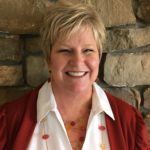 Tammera Ryan has worked with Providence Hospice for the past Thirteen years. She has held various roles within the agency including Community Liaison, Executive Director, and Director of Business Development. She has been married for 27 years. Together, she and her husband have raised their two sons and are very happy to have welcomed a daughter – in- law into their family four years ago. Her favorite quote comes from Ghandi, “Be the change you wish you see in the world.”
Tammera Ryan has worked with Providence Hospice for the past Thirteen years. She has held various roles within the agency including Community Liaison, Executive Director, and Director of Business Development. She has been married for 27 years. Together, she and her husband have raised their two sons and are very happy to have welcomed a daughter – in- law into their family four years ago. Her favorite quote comes from Ghandi, “Be the change you wish you see in the world.”
The Act Locally Waco blog publishes posts with a connection to these aspirations for Waco. If you are interested in writing for the Act Locally Waco Blog, please email [email protected] for more information.
By Diego Loredo
One of the biggest reasons why college can be stressful is because of final exams. It’s unavoidable. Every student has to take them at the end of the semester (unless your teacher decides to not have one). It can be really stressful studying for these exams, but they’re not that bad if you do the right things.
Final exams are almost here, which always causes students to stress out (myself included). My first semester experiencing college final exams was tough. I wasn’t really prepared and would often be up late at night in my dorm studying for my exam the next morning. But now that I’m a sophomore, I’ve gotten kind of used to finals and have developed my own way of studying for exams.
Review your notes!
I know this seems pretty obvious, but it isn’t something you should underestimate. Some professors do not provide review sheets and just say “your notes are your review sheets.” Trust me, it sucks when that happens. Hopefully this is something that you’ve been doing throughout the semester, if not ask to borrow a friend’s class notes. Read over your notes and maybe compare them with a classmate’s.
Work on the review sheet with your classmates
The more the merrier, right? Although you might prefer to study on your own so that you can focus, studying with a group of classmates has its advantages. You might learn something from your classmates that you might have missed during class. Also, if there is something you didn’t understand, maybe your classmates know and can help you understand. Working on the review sheet with a few classmates is always better in my opinion.
Study early
Don’t wait until the last minute to study for exams. It’s best to study about a week or two before the exam to ensure that you can go over the material as much as possible. Waiting until the night before to study for an exam is the worst thing you can do. I learned this the hard way. During my freshman year, I waited until the day before my final exam for statistics (which is the toughest class I have taken so far). That wasn’t a very smart decision, especially regarding how hard stats was for me, and I ended up getting a D on the exam. I got a C for the class, in my defense I was two points away from a B! Anyway, always make sure you study early on to make sure you don’t miss anything.
Have a friend quiz you
One good method of studying is having a friend quiz you over what will be on the exam. Ask your roommate or a classmate to ask you questions that will be on the exam. Keep track of those you get right and those you get wrong. Doing this will give you a sense of what you need to study and what you already know and don’t need to study as much. Do this several times until you are confident enough to take the exam. This will also help you memorize material for the exam.
Relax!
This is probably the most important thing to remember when studying for exams. Just relax! Don’t stress too much over exams, overthinking it will only hurt your chances of getting a good grade. There’s also such a thing of studying too much. Take a few breaks while studying. Just stay calm and be confident!
Exams can be intimidating, but if you study properly then you should do well. However, don’t get discouraged if you get a bad grade on one or more of your exams. It happens to all students, just think of what worked for you and what didn’t work and use that to come back stronger next semester. These last few weeks of the semester are always hectic, with final projects being due and studying for finals, but as long as you stay calm and study properly you should be fine. Best of luck!
 Diego Loredo is a sophomore at the University of North Texas. He is majoring in public relations. He graduated from University High School in 2014. Although he is still not quite sure what exactly he wants to do, he thinks he wants to work somewhere in sports PR (preferably soccer or college football). His hobbies include playing soccer and golf. He is 19 years old.
Diego Loredo is a sophomore at the University of North Texas. He is majoring in public relations. He graduated from University High School in 2014. Although he is still not quite sure what exactly he wants to do, he thinks he wants to work somewhere in sports PR (preferably soccer or college football). His hobbies include playing soccer and golf. He is 19 years old.
The Act Locally Waco blog publishes posts with a connection to these Aspirations for Waco. If you are interested in writing for the Act Locally Waco Blog, please email [email protected] for more information.
By Pam McKown
What does it mean to be a woman? For some it means you calmly usher children to school, engage in a productive day at work, and then settle in safely at home with family to rest peacefully before doing it again.
Yes, this is the reality for some women, but for many women life looks different. For some it means you look as though you have it all together, but inside there is a battle being waged that includes feelings of guilt, insecurity, fear and vulnerability, and regret for mistakes made. For some women life looks like illness, death, loneliness, depression, or anxiety. For some women, it feels like you have sacrificed everything and you have nothing. You find yourself homeless and striving to find a safe place to sleep while wondering “How did this happen?” You could be secretly planning to leave an abusive partner, questioning how you will make it, or what freedom will look like. You may be trying to convince yourself, “It isn’t so bad here…” even though you know it is. For some of us the story of our lives may include any and all of these things.
Take Heart Ministries (THM), a new non-profit here in Waco, is working to connect women of all walks of life through the uniqueness that makes us women. Our mission is to build dignity, improve health, and restore hope to women who are homeless or in transition by providing them with female hygiene products.
See…women may all look different, feel different, be different and have different stories, but the one thing we share is that fact that we all have dealt with menstruation. Take Heart Ministries hopes to address the needs of homeless women by providing a month’s supply of tampons, pads, cleansing wipes, a box of granola bars and bottled water in a purple backpack called a “Love Tote.” What possibly could some tampons or pads mean to a woman who has nothing? It’s not going to feed her; it’s not going to clothe her; it’s not going to sustain her. But, at Take Heart Ministries we believe it will help her maintain her health and restore her dignity. It might help her stand tall with their face lifted and say, “I’m going to overcome.” And let’s be honest…we all long for that.
As women we all share the physical fact of menstruation. Take Heart Ministries seeks to build on that physical similarity to unite women of this community in a genuine authenticity that comes from being honest with ourselves and other women about our stories. Because if I’m honest, I have an understanding of the need to be loved deeply. I have my own feelings of loneliness, depression, feeling unknown and without purpose. I have made choices to give myself “love” or “happiness” through excessively drinking alcohol, sex, an addiction to pornography, battles with postpartum depression and infidelity in my marriage. These things gave me an immediate outlet to give my love to something or someone but continually left me empty and longing.
I have felt out of control in anger, addiction, sadness, guilt and isolation. Though the battle has been won and my head has been lifted, I still feel plagued at times with the lessons that I learned from this time. Even now, when things get tough, I face a strong urge – not return to the behaviors – but to revert back to the safe place of shame.
What does this mean? It means that in order to share a model for authentically loving others, we have to get real and honest. It means your story and my story are not perfect, but they also are not over! If we as women unite in brokenness and authenticity, love can heal what hurt divides. Mercy is waiting on the other side of our honesty. This is the very heart of Take Heart Ministries: to be honest with our own stories in order to share them. In doing so, we relate in the foundation of being a woman and become available to show God’s redeeming love to others by living out the very redemption He has given us.
Our hope is to engage you in this conversation, to challenge the women in this community to let down the walls that divide us, to join hands in serving and loving each other, and in recognizing the value that we all have simply by being uniquely ourselves. Take Heart Ministries would love to share our heart with you and groups that you are involved in. We currently have community partners that are distributing our Love Totes. We would love to see how we could provide that gift to your agency or group. It is a small gesture that relieves a woman of one burden she is carrying. Check us out at www.takeheartministry.org and feel free to contact me about how you can become involved in the life changing work taking place here.
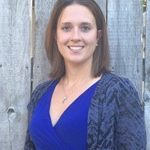 Pam McKown is a Clinical Social Worker who provides individual therapy to those dealing with mental health or substance abuse issues at Journey Counseling Center. She is the Co-Founder of Take Heart Ministries. She is a long time native of Waco. She has a passion for social justice and journeying with people through life and finding true meaning and hope. She also is highly passionate about her family and the Baylor Bears.
Pam McKown is a Clinical Social Worker who provides individual therapy to those dealing with mental health or substance abuse issues at Journey Counseling Center. She is the Co-Founder of Take Heart Ministries. She is a long time native of Waco. She has a passion for social justice and journeying with people through life and finding true meaning and hope. She also is highly passionate about her family and the Baylor Bears.
The Act Locally Waco blog publishes posts with a connection to these aspirations for Waco. If you are interested in writing for the Act Locally Waco Blog, please email [email protected] for more information.
by Florence Gassler Scattergood
Choruses love to sing. That’s why they exist. Singers enjoy the way vocal exercises soothe our being, improving our technique to enable us to express ourselves with greater beauty and ease. We are drawn to poetry in the lyrics, increasing our capacity for empathy and understanding of world around us. The freedom and joy of uniting our best voices, our best selves, with those around us who feel the same are both inspiring and exhilarating for singers of all ages.
Choral singing is a special experience which enables a group of strangers to unite with one purpose. Since talent is no respecter of socio-economic status, physical or mental capacity, or religious or political conviction, a choir is the place where all participants can be valued for their individual commitment to the collective production of beautiful music.
 There is a unique sense of belonging and well-being that comes from singing in a choir. There is a physical sensation of connectivity in a room where all are focused on using their voices in the same way at the same time. Adding beautiful melodies, pleasing harmonies, and well-crafted lyrics to this commitment to vocal unity elevates the experience to choral artistry.
There is a unique sense of belonging and well-being that comes from singing in a choir. There is a physical sensation of connectivity in a room where all are focused on using their voices in the same way at the same time. Adding beautiful melodies, pleasing harmonies, and well-crafted lyrics to this commitment to vocal unity elevates the experience to choral artistry.
Special relationships develop within a choral setting; director with singers, singers with singers, and singers with the audience. Lifelong friendships and unexpected collaborations fuel and motivate all involved. Studies even show that those involved in choral singing early in life become significantly more active in philanthropy, civic affairs, and volunteerism as adults than the general population.
I have had the delight and pleasure of spending my professional career immersed in these experiences surrounded by singers. As a choir member and an ensemble director, I can testify that not every minute of every rehearsal generates the perfect moment of musicality or significant meaning, but the sharing of the vision and the striving toward excellence always propels us as we move toward our goal of becoming musically literate vocal artists. The process is the daily bread which feeds my soul. To my delight it is also feeding the souls of those who are eavesdropping.
This fall a unique partnership began between the Youth Chorus of Central Texas and Stilwell Retirement Residence. With the gracious hospitality of Joel Wright, the Executive Director of Stilwell Retirement Residence, and the generous support of the Stilwell staff, fifty young choristers from roughly 20 schools are welcomed every Monday afternoon to their fine facility for weekly practice. It is also when and where we build commUNITY.
Singers and their parents from all over the city converge on Stilwell for rehearsal and are greeted by new friends. When I enter the building, the room is set up and ready for our lively singers who range in age from third through tenth grade. Our Baylor and WISD interns arrive early to prep for the singers as does our pianist. Stilwell staff are ready to help with our logistical and clerical needs.
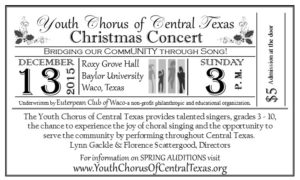 We rehearse adjacent to the dining room and residents regularly peek in to see and hear us. Sometimes we venture into the dining room and sing newly polished songs. The ladies and gentlemen are a gracious and supportive audience. They tell us stories of their personal musical adventures and encourage and compliment our efforts. We have shared Halloween goodies with them and are sure Christmas will include some sort of celebration as well. Several YCCT members and parents have made inquiries as to volunteer opportunities with our new friends. This is a delightful development.
We rehearse adjacent to the dining room and residents regularly peek in to see and hear us. Sometimes we venture into the dining room and sing newly polished songs. The ladies and gentlemen are a gracious and supportive audience. They tell us stories of their personal musical adventures and encourage and compliment our efforts. We have shared Halloween goodies with them and are sure Christmas will include some sort of celebration as well. Several YCCT members and parents have made inquiries as to volunteer opportunities with our new friends. This is a delightful development.
We arrived at this partnership out of necessity. The YCCT is a community chorus; we are not affiliated with any particular school, church, or major institution. We do not have a permanent home. It is important for us to have a central location which is welcoming to our culturally diverse membership. The Stilwell family has welcomed us with open arms and the YCCT families enjoy coming to Stilwell. Our parents can wait for their children on site or visit the public library or do some shopping nearby.
We entered into this partnership for the purpose of having a rehearsal space and have actually found a home, complete with enthusiastic and nurturing eavesdroppers who share our joy and passion for feeding souls through song.
Since 2013, YCCT has served over 100 singers from approximately 25 schools providing music for the PACK of HOPE, Meals and Wheels, Waco Cultural Arts Festival, and the Interfaith Holocaust Remembrance Service. The choir received the 2014 Model of Unity Award from the Community Race Relations Coalition of Waco. Please visit www.youthchorusofcentraltexas.org for information on SPRING AUDITIONS.
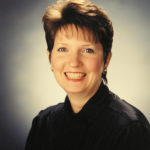 Florence Gassler Scattergood and her husband Bob live in her childhood home with their cat Cougar. She is currently an adjunct lecturer at Baylor University and is co-founder/director of the Youth Chorus of Central Texas with Lynne Gackle. Florence enjoys reading, cooking, traveling, and socializing with the neighbors. For her professional bio visit www.youthchorusofcentraltexas.org.
Florence Gassler Scattergood and her husband Bob live in her childhood home with their cat Cougar. She is currently an adjunct lecturer at Baylor University and is co-founder/director of the Youth Chorus of Central Texas with Lynne Gackle. Florence enjoys reading, cooking, traveling, and socializing with the neighbors. For her professional bio visit www.youthchorusofcentraltexas.org.
The Act Locally Waco blog publishes posts with a connection to these aspirations for Waco. If you are interested in writing for the Act Locally Waco Blog, please email [email protected] for more information.
by Tammera Ryan
You are probably saying to yourself right now, “Why do I want to read this? Hospice is a scary word. I don’t want to think, talk, or read about dying.” Just so you know, I agree! However, I have been caring for patients and families for the last 13 years with Providence Hospice, and I would be doing them and you a huge disservice if I didn’t take this opportunity to help dispel some of the myths related to hospice care. Those patients and families have taught me a great deal about “LIVING!”
In 1992, the month of November was designated to raise awareness of hospice within the community. During this month, hospices across the country are reaching out to raise awareness about important care issues for people coping with serious illness.
Our staff has found that when meeting with patients and families, there are common misconceptions**:
Misconception: Hospice means there’s nothing more that doctors can do for you.
Truth: Hospice does not mean giving up hope. Hospice physicians are experts in pain management, symptom, control, and other techniques to relieve suffering. (Did you know that Providence Hospice is contracted with a massage therapist who can help patients?) The hospice team also includes nurse, aides, social workers, chaplains, and volunteers.
Misconception: Hospice is only for cancer patients.
Truth: That was the case when hospice started 40 years ago, but today more than half of hospice patients have other diseases and illnesses such as congestive heart failure, end stage renal disease, and other chronic diseases.
Misconception: Hospice is for the very last weeks or days of life.
Truth: Under Medicare, Medicaid, and most private health insurance, hospice is available to patients with a terminal illness with a life expectancy of 6 months or less. If patients outlive that, they can often stay on hospice care or go off and come back on when needed. People sometimes live longer than expected because they get good comfort care by a team of professionals who view the patient as a person, not as a disease.
Misconception: Hospice helps you die more quickly and prevents patients from being able to talk or know what’s happening.
Truth: Hospice can open time and space for emotional connection, spiritual growth or accomplishing a goal. Hospice’s role is to provide comfort care and symptom management to support quality of life – not to hasten the end of life. Additionally, hospice doctors and nurses are up to date on the latest medications for pain and symptom relief and have a high success rate in managing pain to a level that is acceptable to the patient. It is the goal of hospice care for patients to be as comfortable and alert as they desire.
Misconception: Hospice is a place.
Truth: Hospice is a philosophy and a set of practices focused on comforting patients, supporting families and helping people live as fully as possible in the time they have left. It is true that most hospice services are delivered in a personal residence. However, hospice care can also be delivered in assisted living facilities and nursing homes. Some hospice agencies do have dedicated in-patient facilities as well. (Did you know that Providence Hospice opened Providence Hospice Place, our area’s first and only in-patient hospice care facility? This is an eight-bed unit specifically designed to offer an intensive level of care for patients who are experiencing severe symptoms requiring daily interventions.)
Misconception: There are additional expenses when hospice gets involved.
Truth: Medicare, Medicaid, and most private insurances cover all services, supplies, and medications related to the life-limiting illness. (Did you know that Providence Hospice is a not-for- profit hospice provider and has never turned anyone away due to inability to pay.)
Our team gets asked many, many questions and we are always happy to respond. With close to 20 years of providing expert hospice care in this community, the Providence Hospice staff is extremely knowledgeable and phenomenally compassionate while meeting the needs of our hospice patients and their families.
I hope that by reading this, you are not as frightened of the “hospice word” as you might have been at the beginning. I believe life is a journey; every breath is important. In the words of Dame Cecily Saunders, founder of the Modern Hospice Movement, “You matter because you are you, and you matter to the end of your life.”
I mentioned in the first paragraph how 13 years of working with the great staff, patients and families of Providence Hospice has taught me about “LIVING”. Several years ago I knew a man who had been diagnosed with a devastating disease. He had four children, the youngest of whom is my incredible husband. As I talked with my father-in-law about hospice care in his kitchen at a small wooden table he had built, he looked me in the eye and told me that all he wanted was to be kept comfortable – Hospice made that happen. He told me that I needed to cherish every day of my life and to always be thankful for what I have regardless of how much or how little that is. I made a promise to him that day. I told him I would “LIVE” every moment and be thankful for what I have…….. every day. I hope you will too!
 Tammera Ryan has worked with Providence Hospice for the past Thirteen years. She has held various roles within the agency including Community Liaison, Executive Director, and Director of Business Development. She has been married for 27 years. Together, she and her husband have raised their two sons and are very happy to have welcomed a daughter – in- law into their family four years ago. Her favorite quote comes from Ghandi, “Be the change you wish you see in the world.”
Tammera Ryan has worked with Providence Hospice for the past Thirteen years. She has held various roles within the agency including Community Liaison, Executive Director, and Director of Business Development. She has been married for 27 years. Together, she and her husband have raised their two sons and are very happy to have welcomed a daughter – in- law into their family four years ago. Her favorite quote comes from Ghandi, “Be the change you wish you see in the world.”
The Act Locally Waco blog publishes posts with a connection to these aspirations for Waco. If you are interested in writing for the Act Locally Waco Blog, please email [email protected] for more information.
** Myths and Truths adapted from American Cancer Society brochure “Hospice: A Special Kind of Caring” and Fox News.com, “5 Myths About Hospice Care.”
by Kelsey Miller
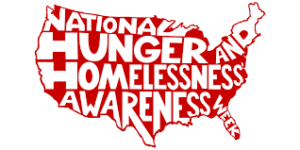 National Hunger and Homelessness Awareness Week is upon us! During this week before Thanksgiving every year in November, communities across the United States gather together to join in raising awareness and spurring action on behalf of our neighbors who experience hunger and homelessness. This year, the local effort in Waco is focusing on seniors, for whom the challenges of hunger and homelessness can be particularly profound.
National Hunger and Homelessness Awareness Week is upon us! During this week before Thanksgiving every year in November, communities across the United States gather together to join in raising awareness and spurring action on behalf of our neighbors who experience hunger and homelessness. This year, the local effort in Waco is focusing on seniors, for whom the challenges of hunger and homelessness can be particularly profound.
Our friends at Meals on Wheels teach us that the number of seniors in the U.S. will double by the year 2050, from 57 million to 112 million people (National Senior Fact Sheet). And did you know that according to Feeding America, food insecure seniors, whose households make up 9% of all households (Household Food Security), are at greater risk for chronic health conditions including depression, heart attacks, asthma, and congestive heart failure?
And when it comes to homelessness, homeless persons aged 50 to 62 oftentimes face the same health conditions suffered by housed individuals who are 10-20 years older (NCH). Due to a lack of affordable housing, there are at least nine seniors on the waiting list for every one occupied unit of affordable elderly housing across the nation (NCH).
These realities shocked me when I first heard them. However, knowing what I know about the resilience of seniors and their advocates in our community and beyond, I became hopeful when I learned more about efforts to change these numbers. For instance, the Older Americans Act (OAA), first enacted in 1965, ensures critical services for older adults to help keep them healthy and independent. These services include things like meals, job training, senior centers, caregiver support, transportation, health promotion, benefits enrollment, and more.
The OOA expired in 2011 and was not reauthorized until July 2015. Provisions to the bill included new support for renovating multipurpose senior centers, an increased focus on addressing economic needs, a requirement that health promotion and disease prevention initiatives be evidence-based, and programs to promote chronic disease self-management and falls prevention. The Older Americans Reauthorization Act of 2015 still awaits approval from the House of Representatives.
How can YOU help?
During the week of November 15-22, 2015, we have the unique opportunity as Wacoans to come together to learn more and to advocate for change on many levels. The week’s events are sponsored by The McLennan County Hunger Coalition (MCHC) and the Heart of Texas Homeless Coalition (HOTHC), and kicked off yesterday at Church Under the Bridge and with the CROP Walk to benefit hungry people around the world.
On Monday, stop by a letter-writing station on Baylor’s campus, MCC’s campus, or at the Olive Branch restaurant to pledge your support for the passage of the Older Americans Act and to urge your members of Congress to do the same.
On Tuesday, attend the Waco City Council meeting as our Councilmembers issue a proclamation to observe National Hunger and Homelessness Awareness Week, and we thank them for their support.
On Thursday evening, join us at “Dinner and a Movie,” which will feature Hungry in the West End, a documentary look at senior hunger produced by AARP. Dinner is provided with donations accepted to benefit local agencies serving seniors. The event will be held at 6pm at St. Alban’s Episcopal Church, 305 N. 30th St. (Corner of Waco Drive and 30th Street).
On Friday, donate food and monetary donations to this year’s Food for Families Food Drive — the largest one-day food drive in the state! All proceeds and food collected benefit local pantries and feed our neighbors. Want to volunteer at a drop-off location? Contact Chelle Samaniego at [email protected] to get signed up for a two-hour shift.
On Saturday, join us for the 10th Annual Central Texas Turkey Trot — the fastest race in town! Sign up at https://www.signmeup.com/108397.
The natural opportunities and challenges that come with aging are enough for seniors to navigate; hunger and homelessness shouldn’t be among them. Please join us at one of the many events this week to grow your knowledge, engage in action, and advocate for our seniors!
To learn more about the activities and locations, go to www.mclennanhunger.org , or contact:
- Erin Payseur 254-710-1736, [email protected] , or
Cameron Goodman 254-750-5777, [email protected]
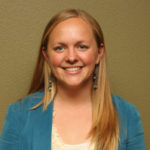 Kelsey Miller is a Child Hunger Outreach Specialist at Texas Hunger Initiative’s Waco Regional Office. She is passionate about more people gaining access to and education about healthy foods and our food system, and thinks the expertise of those experiencing hunger and poverty should always be our starting point. Kelsey lives with her husband and rambunctious puppy in Waco, and is also pursuing an MSW from Baylor part-time.
Kelsey Miller is a Child Hunger Outreach Specialist at Texas Hunger Initiative’s Waco Regional Office. She is passionate about more people gaining access to and education about healthy foods and our food system, and thinks the expertise of those experiencing hunger and poverty should always be our starting point. Kelsey lives with her husband and rambunctious puppy in Waco, and is also pursuing an MSW from Baylor part-time.
The Act Locally Waco blog publishes posts with a connection to these aspirations for Waco. If you are interested in writing for the Act Locally Waco Blog, please email [email protected] for more information.
Sources
Coleman-Jensen, A., Rabbitt, M., Gregory, C., & Singh, A. (2015). Household Food Security in the United States in 2014, Table 2. USDA ERS. http://www.ers.usda.gov/media/1896841/err194.pdf. Accessed October 1, 2015.
Feeding America. Senior Hunger Fact Sheet. http://www.feedingamerica.org/hunger-in-america/impact-of-hunger/senior-hunger/senior-hunger-fact-sheet.html?referrer=https://www.google.com/. Accessed October 1, 2015.
Meals on Wheels America. National Senior Fact Sheet. http://www.mealsonwheelsamerica.org/docs/default-source/fact-sheets/senior-fact-sheet-national.pdf?sfvrsn=2. Accessed October 1, 2015.
National Coalition for the Homeless (NCH) (2014). Elder Homelessness. http://nationalhomeless.org/issues/elderly/. Accessed October 1, 2015.
National Council on Aging. Older Americans Act. https://www.ncoa.org/public-policy-action/older-americans-act/. Accessed October 1, 2015.
by Barbara Bridgewater
Several years ago, several of my church family decided to invest in some property in the Sanger Heights neighborhood where we live in order to provide inexpensive housing to our other church family members who wanted to live in the neighborhood and to other families who wanted to live here, too. We call ourselves Casa Azul, reflecting the Spanish speaking influence of our church. We bought two pieces of property that we rent to different families and it takes all seven of us to keep up the business of being good landlords. Many of our discussions over the years have been as to whether or not to hire someone to do what’s needed or to do it ourselves. With each of us maintaining other jobs and families, we often choose to hire out the maintenance or other work.
But not always. Sometimes, despite our other schedules, we take time to go visit our renters, try to fix what’s needed or mow the lawn ourselves. At times, this feels a little inefficient, especially when it comes to mowing the lawns, which I’ve taken upon myself to do.
I could, instead, easily work another two hours and earn the money to pay someone the time it takes for me to get the mower, get to the property, get hot and sweaty as I repeat monotonous patterns and then shower off the results! And sometimes, we do just that: hire someone else who already has a business mowing lawns to do ours as well. But not usually. Usually, I choose to walk to get the mower, then walk to the properties to mow them. Usually I choose to do it because something magical happens that I hadn’t planned on in my busy life.
Usually I meet a neighbor along my walk I hadn’t met before or one I hadn’t seen in a while. One time, an elderly neighbor really needed his front lawn mowed but had no money until the following week, so I mowed it for him. Another time, a stranger asked if he could mow the lawn for some extra money, and we ended up in a long conversation about other benefits around the city that he could use in his time of need. Most of the time, I converse with one of the renters, and usually she offers me something to drink and we sit pause for a bit and talk. Always, I am able to greet at least a half dozen people in my neighborhood whom otherwise I wouldn’t see that day. Always, I marvel at my diverse neighborhood and smile at the new improvements, the ways in which we are growing this neighborhood together, the pothole that I need to report to the city, the child that is growing up, and the new flowers someone has lovingly planted.
 Barbara Bridgewater has lived with her husband, Phillip, and 2 daughters in the diverse north Waco neighborhood of Sanger Heights for 17 years. She teaches English to adults through MCC and works with homeless families at Compassion Ministries (while Phillip works with Habitat for Humanity International). Barbara attends a church in that neighborhood called Hope Fellowship, where Casa Azul was born.
Barbara Bridgewater has lived with her husband, Phillip, and 2 daughters in the diverse north Waco neighborhood of Sanger Heights for 17 years. She teaches English to adults through MCC and works with homeless families at Compassion Ministries (while Phillip works with Habitat for Humanity International). Barbara attends a church in that neighborhood called Hope Fellowship, where Casa Azul was born.
The Act Locally Waco blog publishes posts with a connection to these aspirations for Waco. If you are interested in writing for the Act Locally Waco Blog, please email [email protected] for more information.
By Jimmy Osborn
When I was a sophomore at Baylor, I joined Young Life and was placed at a high school in North Waco called Connally high school. For those not familiar with Young Life, it is a Christian outreach program that places college and adult leaders at different high schools, and encourages relational ministry. Let me first say that I’m originally from Houston, Texas, where I attended a private high school, graduated, and then attended another private school in Baylor. Throughout my entire education, I had not seen a lot of diversity, let alone lived in it. Connally High School thrives on diversity. It could be characterized as a 30-30-30 school, with equal percentages of students being African-American, White, and Latino. In doing Young Life at Connally, I’ve experienced true diversity for the first time.
Throughout my first year and a half at Baylor, prior to my Young Life days, I rarely traveled north on I-35. I did the typical thing most Baylor students do and seldom veered off the trusty Valley Mills Dr. I occasionally spent time in the Woodway area, but for the most part I lived in the infamous “Baylor Bubble.” In my first few experiences with leaving the Baylor Bubble to go to Connally, there was an initial shock value on some level. I was going to places where kids had completely different upbringings than myself. I was nervous about being able to connect with kids; it was eye opening to be around such a different culture. Being around kids from Connally made the divide in Waco far more obvious to me.
One of the integral parts of Young Life is “Club,” which is a weekly event where we bring kids to a different location, sing songs, play games, and talk about Jesus. Each week, my job is to pick up kids from Connally and bring them to Club. Our clubroom when I first started Young Life, was located in an old church building at Valley Mills and Waco Dr. For the most part, the boys I had gotten to know did not spend their time over here. They viewed it as a field trip of sorts. Sure, they had visited all over Waco, but for the most part they stuck to their pocket of Waco. I remember one event we had at Cameron Park. In my mind Cameron Park is an open place, but to my kids this wasn’t a place they felt really comfortable going. This wasn’t their pocket. For many of them, this was their first time going to Cameron Park, despite living in Waco for their whole lives. Why is that? How come four African-American high school boys wouldn’t feel comfortable going to a Waco staple like Cameron Park? They are just as much a part of Waco as I am, or as the young adult living down town, or as the family living off of Lake Waco.
After doing Young Life for about three years, I’ve gotten the benefit of being able to see most of Waco, and the division in Waco has become more and more clear to me. Divisions can be discouraging. I look at it and I’m thankful to be a part of something like Act Locally Waco, which aims to solve the divisions. At Act Locally Waco, one of the essential values we hold is the unification of Waco. By sharing events all over Waco, in each pocket, we encourage fellow Wacoans to break down the invisible barriers built up over the years and come together for a greater cause. Waco is a diverse city, and we have every reason to celebrate that. Since my freshman year in 2011, Waco has already seen so much change and growth. I’m excited to see what Waco will look like in the coming years. Along with all the development surely to come to Waco in the near future, I hope that these hidden walls will come down as new buildings go up.
 Jimmy Osborn is a senior at Baylor University, who is from Houston, Texas. As a professional writing major, Jimmy hopes to transition into the advertising field after graduation to become a copywriter. Jimmy enjoys tacos, golden retrievers, baseball, and having staunch opinions over movie and TV show characters.
Jimmy Osborn is a senior at Baylor University, who is from Houston, Texas. As a professional writing major, Jimmy hopes to transition into the advertising field after graduation to become a copywriter. Jimmy enjoys tacos, golden retrievers, baseball, and having staunch opinions over movie and TV show characters.
The Act Locally Waco blog publishes posts with a connection to these aspirations for Waco. If you are interested in writing for the Act Locally Waco Blog, please email [email protected] for more information.
by Jenuine Poetess
 Recently, I had a chance to engage Creative Waco’s Director, Fiona Bond, to learn more about the project, its mission, and movements in Waco toward building and sustaining a thriving Cultural Arts District. I’m pleased to share the interview with you! More. Art. Now!
Recently, I had a chance to engage Creative Waco’s Director, Fiona Bond, to learn more about the project, its mission, and movements in Waco toward building and sustaining a thriving Cultural Arts District. I’m pleased to share the interview with you! More. Art. Now!
Jenuine Poetess: Please share a bit about yourself and how you became interested and involved in the arts in Waco.
Fiona Bond: I’m in this because I love the arts and this city and have huge respect and
admiration for those who work so hard to enrich its artistic and cultural life. In the UK, I ran festivals, cultural projects and arts organizations. I guess no one goes into this kind of work for the money or an easy life! However, when you see first-hand the difference that the arts make to places and people – no matter who they are or where they come from, it’s humbling and powerful.
I love Waco for so many reasons. I think it’s one of the most authentic places I’ve ever lived. It’s a wonderful location full of great people doing great things and I think we get to live here at a particularly exciting time in its history.
JP: What is Creative Waco?
FB: We are a Non-Profit 501(c)(3) Corporation established to be Waco’s “Arts Agency.” Cities that have arts agencies have a proven toolkit for growing the arts that combines access to funding (that Waco has not historically received) with growing the arts as part of the overall strategy for our community. Our mission is “to Grow and support the artistic and cultural life of Waco.”
JP: How does Creative Waco serve artists, arts & cultural organizations, and grass-roots efforts in Waco?
FB: I hope we will be able to do this in a number of ways. Firstly, I think we have a role making sure that our wider community, businesses and civic organizations know the power of the arts and cultural sector as an engine for growing Waco. We want to bring new resources to our artists and arts organizations in the form of practical support and also funding and infrastructure that have not historically been available to grow Waco as a Cultural Hub.
 Of course, we are not the only organization that is working to serve our artists and cultural organizations. Each part of the cultural “ecosystem” has an important role to play – individual artists are connecting with one another through CTAC. Four Columns Marketing has a monthly “potluck” for creative professionals and Waco Arts Alliance (which we help to co-ordinate) provides opportunities for people who run arts organizations, cultural events and activities. These all do the important work of building community, supporting professional development, and creating opportunities for connecting on all kinds of great ideas.
Of course, we are not the only organization that is working to serve our artists and cultural organizations. Each part of the cultural “ecosystem” has an important role to play – individual artists are connecting with one another through CTAC. Four Columns Marketing has a monthly “potluck” for creative professionals and Waco Arts Alliance (which we help to co-ordinate) provides opportunities for people who run arts organizations, cultural events and activities. These all do the important work of building community, supporting professional development, and creating opportunities for connecting on all kinds of great ideas.
JP: What are the main functions of CW?
FB: Right now, we are working on setting up the infrastructure that will allow Waco to be successful at creating some of the opportunities that have benefitted peer cities (like Fort Worth, Abilene, Amarillo and Round Rock…even Clifton!). For example, we are coordinating an application for Waco to be designated a Texas Commission on the Arts Cultural District. It also means working with our city and other agencies to start making bids for funding and other opportunities at state and national level. Here in Waco, we are beginning the work of coordinating resources, information and ideas so that we can grow Waco as a cultural hub…and tell the world.
JP: What are some projects CW is working on?
FB: Here are a few…
- Joint funding bids (e.g. with City for NEA funding towards artistic wayfinding that would join East and West Waco);
- Cultural District Application–the work of establishing a robust organization that can act as Waco’s Arts Agency and co-ordinate the Cultural District.
- We won the opportunity for Waco to be a feature city in Americans for the Arts’ national survey about economic impact of the Arts (funded jointly by our City, Chamber, BRC and CVB)
- Making Waco a hub for professional development opportunities for arts leadership (Texans for the Arts Day on Feb 24th at Waco Hippodrome).
- We are also working on making it easier for people in Waco to hear about the arts and artists through a variety of media outlets
JP: What is the place of arts & culture in community development? How important is arts & culture in comparison to work around poverty, education, employment, housing, and commerce?
FB: The arts do community development by their very nature because they are physical, experiential and creative. One of my past roles was to oversee a project that worked with generations of unemployed former mineworkers in Co Durham, England. The arts input gave hope and developed skills in a way that nothing else could. You see this over and over again. Issue-based drama and role-play do a better job of reaching vulnerable teens than telling them what to do, for example. The arts give us language and tools for asking questions, experimenting with complexity and outcomes, and opening up our humanity in ways that are completely unique. There is a lot of research that shows communities with a vibrant arts and cultural life thrive in all the ways we consider vital for “liveability”: Educational outcomes, revitalization, economic development, tourism, community cohesion and pride and even crime reduction. I have yet to see a community in the Western world that managed to “move the needle” on those issues without engaging its artistic and cultural “superpowers.”
JP: What do you hope to see come to life in Waco/Central Texas with regard to the arts?
FB: I would like Waco’s cultural gems to be better known and better supported. We have World-class artists, composers, performers, writers, and experts…right here in Waco and yet there is still a perception that because something is happening in Waco, it’s not quite as good as something presented in a larger or better known city.
I would like to see people who don’t think they care about the arts speak proudly about the vibrant cultural life of our city and relish investing in that and seeing the results, recognizing that it’s an essential part of the healthy growth of our community (just as even non-sports players invest in the important role that sport has in our community).
I would like Waco, with it’s perfect “crossing of the Brazos,” central Texas location to become a flourishing cultural hub for the 21st century – supporting thriving, sustainable, top notch venues and programming across many art forms. Our economic opportunity is not that we are conveniently close to Austin, Dallas, Fort Worth and other cultural centers…it is that they are close to us!
Get Involved!
-
 Connect on Facebook and Online to get the latest details, information, and event postings!
Connect on Facebook and Online to get the latest details, information, and event postings! - If you are an artist interested in being featured on the Creative Waco site, connect here!
- Support arts in Waco and purchase a blank, painted, or fully customized Creative Waco tote!
Be involved with local arts events: attend, bring friends, buy local artwork & publications, share events with others, help promote what is happening, donate to fund-raising initiatives, visit exhibits, make art, inspire others, create community!
 Jenuine Poetess is an artist, visionary, and community organizer. In 2010, she founded In the Words of Womyn (ITWOW), an international, grass-roots, written and spoken-word arts project with chapters throughout Los Angeles, CA; Waco, TX; and Lebanon. Jenuine is the founder of Waco Poets Society and co-founder of the Central Texas Artist Collective. She writes, organizes, and creates rooted in the fierce conviction that holding intentional space, access, and opportunity for all people to foster their creative health is a matter of justice and is a vital asset to the sustainable thriving of communities. She currently lives and poems in Central Texas where she enjoys finding new ways to disrupt the homeostasis of her city. You can contact her at: [email protected].
Jenuine Poetess is an artist, visionary, and community organizer. In 2010, she founded In the Words of Womyn (ITWOW), an international, grass-roots, written and spoken-word arts project with chapters throughout Los Angeles, CA; Waco, TX; and Lebanon. Jenuine is the founder of Waco Poets Society and co-founder of the Central Texas Artist Collective. She writes, organizes, and creates rooted in the fierce conviction that holding intentional space, access, and opportunity for all people to foster their creative health is a matter of justice and is a vital asset to the sustainable thriving of communities. She currently lives and poems in Central Texas where she enjoys finding new ways to disrupt the homeostasis of her city. You can contact her at: [email protected].
The Act Locally Waco blog publishes posts with a connection to these aspirations for Waco. If you are interested in writing for the Act Locally Waco Blog, please email [email protected] for more information.
